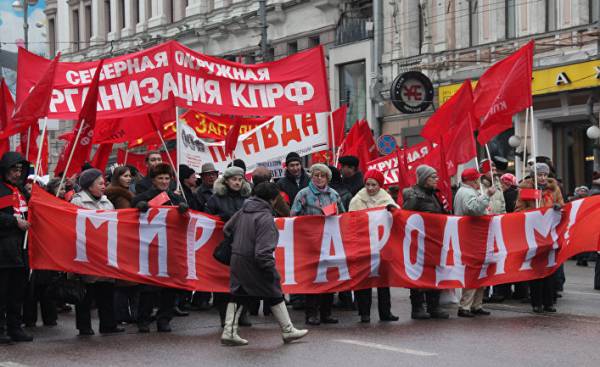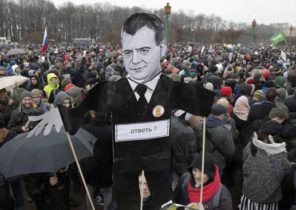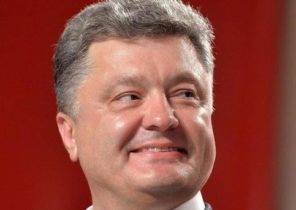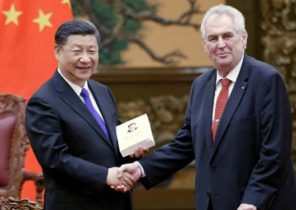
The war to prevent a blind faith in the world.
I have the privilege, that is, I have a lot of privileges, but there is such — I from his seat at the Desk to see from the window of Oscarsborg fortress.
Oscarsborg on the hill szendrő Kaholmen in the Strait of Drøbak is associated with the most famous moment in modern Norwegian history: the sinking of the German cruiser “blücher” on April 9, 1940, stopped the advance of German occupation troops, saved the king and the government from death, captivity and humiliation, and for many years contributed to the formation of our nation.
The king and government
Much has been said about who gave up, who stood up to his full height, when the moment of truth.
Many agree that the king was “king”. At the same time historians, particularly Professor Tom Christiansen (Tom Kristiansen), after a film “the Refusal of the king” (Kongens nei) had to come to the aid of the government Nygaardsvold, Recalling that it is almost the first clearly told the Germans, “no.” This does not detract from the actions of king Haakon (Haakon), but shows the government Nygaardsvold in the best and the right light.
“The film shows the government Nygaardsvold weak, insecure and vacillating. But the reality was different”, says Professor (Aftenposten, 27 Sep 2016).
You can also a lot to say (and said it was small) on the complete humility of some divisions of the General staff and officer corps, honourable representatives in Parliament and outside it, ready to meet the occupation forces.
The naivety of concern
But it was what it was. I primarily affects the utter confusion and disturbing naivety before and after the German invasion, in which people are unable to understand the evil of Nazism, or believed that it was possible to defeat words. This undoubtedly contributed to the fact that numerous alarms were received.
“The Norwegians was almost hypnotized by the threat from the East, from great Britain,” writes the French military historian françois Kersaudy (François Kersaudy) in the book “In the competition for Norway” (Kappløpet om Norge). “If there’s something bothering me more (the German invasion), it is likely any ill-considered action on the part of our British friends,” wrote the Norwegian Ambassador in London Colban Eric (Eric Colban) 8 APR.
And when at 01.30 on the ninth of April, king Haakon was awakened by his adjutant, and informed that Norway entered the war, he asked: “who?”
The policy of neutrality
In Norway, there was agreement that a policy of neutrality (although later there were other points of view), and those few millions of crowns, indicating the differences in approaches to the issue of defense spending, of course, did not prevent Hitler to invade Norway.
A lesson for me April 9, 1940, is not only that history has to teach us, but what we need to learn that history rarely repeats itself.
While in the First world war largely brought unions of different countries, occurrence of world war II, probably could only prevent strong alliances of democracies.
From the view from the window to understanding
From the window you can not only see the Oscarsborg fortress. If you wish, you can also learn what happened to the Oscarsborg fortress, as the events unfolded in April days 77 years ago and understand:
• that we as a nation need a strong national unity that we were not confused, when we will again need dedication. It is therefore important that our government, after the army left Oscarsborg in 2002, finally realized that it is impossible to prevent the deterioration of the fortress, you must keep it in order for the future and for the public;
• the world is changing in relation to the image of the enemy. Oscarsborg was originally built to protect us from the Swedes. But they attacked us, the Germans;
• what you need to stop asking questions, even though we are talking about politics security: maybe, Thorvald Stoltenberg (Thorvald Stoltenberg) and the Bark of Willoch (Kåre Willoch) are right that today unwise on the part of NATO to continue to push Moscow from us?
• that there is no contradiction between a strong defense and a strong desire for peace,
• the love of country, mostly positive force
• what is the difference between occupier and occupied, aggressive nationalism and patriotism peace between the occupying German soldiers singing “Germany above all” as the “Blucher” is sinking and thousands of German soldiers drowned, and the Norwegian defenders, singing “Yes, we love this country”, going to the scaffold.
Dark peaceful history
We all can be helpful to read the book “War and the liberal mind” (War and the Liberal Conscience), a British military historian Michael Howard (Michael Howard) — an overview of the theories of the liberal intelligentsia of the world for 500 years.
Free trade. Republic. Democracy. Socialism. They were all supposed to destroy the Foundation of war.
Free trade would show that regardless of the boundaries people have, ultimately, the common interests. The Republic would be overthrown kings, the nobility, and those who profit from war, and bring peace to the rising of the mind, “a morning of reason”.
The rule of the people would destroy the heart of the war, but the people were more warlike than the elite.
“For example, writes Howard, it became more difficult to argue that Nazi Germany existed only through the power of a small clique of bandits, as this country has captured large areas of Europe, and the Jews killed millions”.
Book by Michael Howard was published in 1978, but it is possible to imagine, what would he say about the naivety of the intelligentsia at a meeting with the “Arab spring” speech or George W. Bush (George W. Bush) “mission accomplished” (Mission Accomplished) may 1, 2002 — when the war really began in full force. Bush’s war on terror gave us more war and more terror.
In addition, only pure pacifists consistently opposed the war. The majority were opposed to some wars, but for other wars.
Last but not least Western intellectuals earnestly advocated the liberation war, which only in rare cases did the peoples free.
The world must be created
Very often, the situation became even worse, forcing Howard to come to the conclusion that Kant was right when he said that the world should create every day: “But Kant may be, he did not know that this is a task that needs to be solved again and again every day of our lives, and that no formula, no organisation and no political or social revolution will ever be able to free mankind from this inexorable duty.”
We are, in any case, can not ensure peace in the Norwegian army, which, according to the military report, has no real fighting force and is able to protect only a medium-sized Norwegian municipality.







